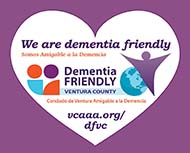By: Sherry Netherland, Director of Special Projects for Assisted Healthcare Services
Hospice is both a service and a philosophy. Hospice embraces that quality of life is much more important than quantity and emphasizes caring rather than curing.
The primary goal of hospice care is to provide comprehensive care to the terminally ill and their families, helping them to continue life as normally as possible.
The modern concept of hospice care as we know it was pioneered and defined by Dame Cicely Saunders, a British physician who opened St. Christopher’s Hospice in London in 1967. It was through her work that the philosophy of emphasizing pain and symptom control rather than curative care was established.
In the United States, the momentum towards hospice care started later than it did in England. It was enhanced by the work of Elisabeth Kubler-Ross who wrote On Death and Dying in 1969. Through the efforts of many professional and laypersons, the hospice movement continued to advance and the first United States hospice program began inNew Haven,Connecticut in 1974.
Originally hospice care was provided in a communal type setting established for the sole purpose of the care of the terminally ill patient. This began to change in 1982 when Congress passed the Medicare Hospice Benefit, expanding hospice care availability for the Medicare eligible population. In 1986, hospice care became a permanent Medicare benefit. Soon, private insurance and managed-care companies followed suit. Hospice then became defined more as a philosophy of care rather than a place.
The person who is dying has the right to the highest possible quality of life in a manner that is consistent with the individual’s life-style and value system. This quality of life is achieved through a multi-disciplinary health care program, which engages the patients and family members. The program encompasses the physical, emotional, spiritual and social needs of the patient.
The patient who is dying is entitled to caring and comfort measures, which ensure that the patient is not desensitized by pain and anxiety, but rather, is kept alert, comfortable, and capable of enjoying personal relationships in their environment.
Hospice care has also expanded into a variety residential settings other than the home. Today, patients are treated at skilled nursing facilities, assisted living facilities, board and care homes, and retirement facilities.
Coordination and continuity of care by all caregivers enhances the well-being of the patient and ensures continuity of care. The spiritual well-being of the patient and family is important. Hospice care should allow the patient to die peacefully and with dignity.
COMPONENTS OF CARE
Family Focus – The family is the unit of care and services extend through the bereavement period.
Interdisciplinary Approach – The team consists of the patient’s physician, the hospice physician, nurse, social worker, clergyman and trained volunteer who meet regularly to assess patient and family needs.
Symptom Control – Emphasis is placed on symptom management and palliative care. A primary focus of the program is to keep each patient as pain free as possible.
Service – Hospice staff is on-call to patients and their families. A member of the hospice team is also available, as needed, to be there when the patient is dying.
Patient Involvement – The patient is considered an active participant in the planning of their care. This allows the patient to have control of their life.
Counseling – The team includes social workers, clergy and trained volunteers who help both the patient and the family accept the diagnosis and work through the physical and emotional problems surrounding the death of a loved one.
Continuity of Care – Care of the patient and family is maintained through transition periods when options other than home care are utilized, such as during hospitalization or transfer to a skilled nursing facility.
Sherry Netherland is the Director of Special Projects for Assisted Healthcare Services and Assisted Home Hospice, a Medicare certified, CHAP accredited home health agency and hospice with 7 branches in California and Arizona. She founded the Assisted Speakers Bureau and she speaks on a variety of healthcare related issues. To learn more about hospice care, end-of-life choices and how Assisted can help, contact http://assisted1.com/hospice.html.







